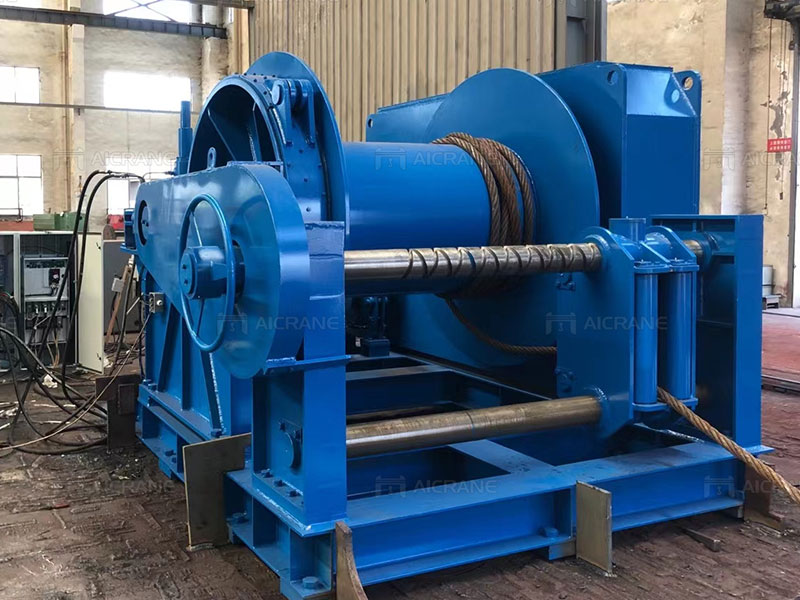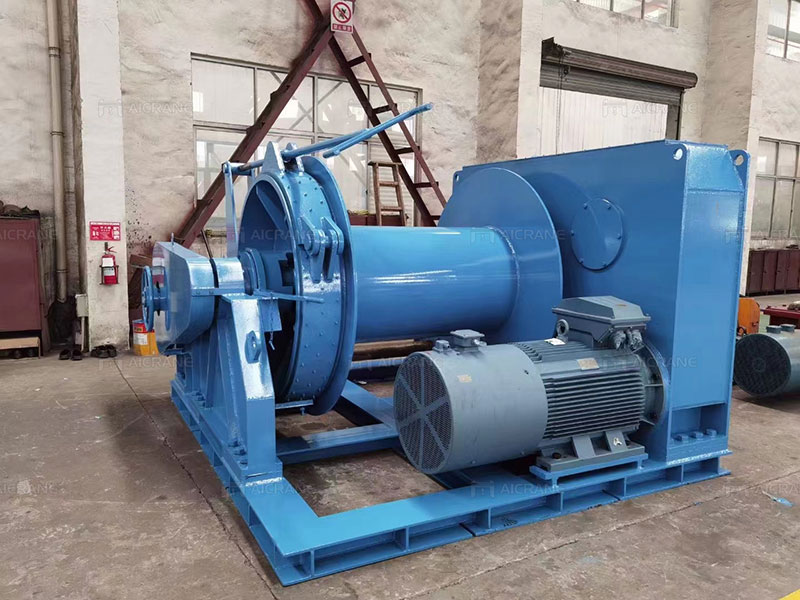Mooring winches are critical components of any vessel’s equipment, responsible for securing the vessel in place while at a dock or anchorage. These winches are essential for safe and efficient maritime operations, and selecting the right electric mooring winch is crucial. In this guide, we will explore the key considerations to help you make an informed decision when choosing an electric mooring winch for your vessel.

1. Understanding Electric Mooring Winches
Electric mooring winches are designed to handle the ropes or wires used for mooring and anchoring a vessel. They are widely used in various maritime applications, including commercial shipping, fishing, offshore oil and gas operations, and recreational boating. These mooring winches come in various sizes and configurations to accommodate different vessel types and sizes.
Electric mooring winches offer several advantages, including precise control, ease of operation, and the ability to handle heavy loads. They are also relatively low-maintenance compared to hydraulic or pneumatic alternatives. However, selecting the right electric mooring winch requires careful consideration of several factors.
2. Determine Load Requirements
The first and most crucial step in selecting an electric mooring winch is determining the load requirements. You need to calculate the maximum force or tension the winch will need to exert to secure your vessel. Consider not only the weight of the vessel but also external factors such as wind, currents, and waves, which can increase the load on the winch.
It’s essential to choose a mooring winch with a load capacity that comfortably exceeds your calculated load requirements. This ensures that the winch can handle unexpected conditions and provides a safety margin. Undersized winches can lead to equipment failure and compromised safety.
3. Line Speed and Drum Capacity
The line speed of the electric mooring winch is another critical consideration. Line speed determines how quickly the winch can retrieve or pay out the mooring line. A faster line speed can be advantageous in situations where quick adjustments are necessary, such as when docking in a busy port or responding to changing weather conditions.
However, it’s essential to strike a balance between line speed and power. Higher line speeds may come at the expense of pulling force or capacity. Consider the specific requirements of your vessel and operations when selecting the appropriate line speed.
Drum capacity is also important, as it determines how much mooring line the winch can store. A larger drum capacity can be beneficial for vessels that require longer mooring lines or for operations that involve deep water anchoring.

4. Power Source and Energy Efficiency
Electric mooring winches rely on electrical power for operation. When selecting a winch, consider the availability of power sources on your vessel. Ensure that your vessel’s electrical system can provide the necessary voltage and amperage for the winch to operate efficiently.
Energy efficiency is another crucial factor to consider, especially for vessels with limited power generation capacity. Look for electric mooring winches that are designed for optimal energy consumption, as this can lead to cost savings and extended battery life.
5. Control System and Automation
Modern electric mooring winches often come with advanced control systems that provide precise and user-friendly operation. These control systems may include features such as variable speed control, load monitoring, and remote operation. Consider the level of automation and control that best suits your vessel’s needs and the experience of your crew.
Automation features can enhance safety and efficiency by reducing the risk of human error during mooring and anchoring operations. However, it’s essential to ensure that your crew is adequately trained to use these systems effectively.
6. Maintenance and Durability
The durability of the electric mooring winch is a crucial factor, especially for vessels that operate in harsh marine environments. Look for winches constructed from corrosion-resistant materials, such as stainless steel, to ensure long-term reliability.
Regular maintenance is essential to extend the lifespan of your mooring winch. Consider the ease of maintenance and the availability of replacement parts when selecting a winch. A winch with readily available spare parts and a maintenance-friendly design can minimize downtime and operational disruptions.
7. Safety Features and Compliance
Safety should always be a top priority when selecting equipment for your vessel. Ensure that the electric mooring winch you choose complies with relevant safety standards and regulations. Look for features such as emergency stop buttons, overload protection, and fail-safe mechanisms.
Additionally, consider the safety of your crew during mooring and anchoring operations. Adequate training and safety procedures are essential to prevent accidents and injuries.
8. Budget Considerations
While it’s essential to prioritize safety and functionality, budget constraints are a practical consideration. Electric mooring winches come in a wide range of price points, so it’s crucial to strike a balance between your budget and your vessel’s requirements.
Remember that investing in a high-quality marine winch that meets your needs can lead to long-term cost savings by reducing maintenance and downtime expenses.
Conclusion
Selecting the right electric mooring winch is a critical decision for vessel operators. By carefully considering factors such as load requirements, line speed, power source, control systems, maintenance, safety features, and budget, you can make an informed choice that ensures the safety and efficiency of your vessel’s mooring and anchoring operations.
Ultimately, the goal is to choose a mooring winch that not only meets your immediate needs but also provides long-term reliability and performance, contributing to the success of your maritime endeavors.